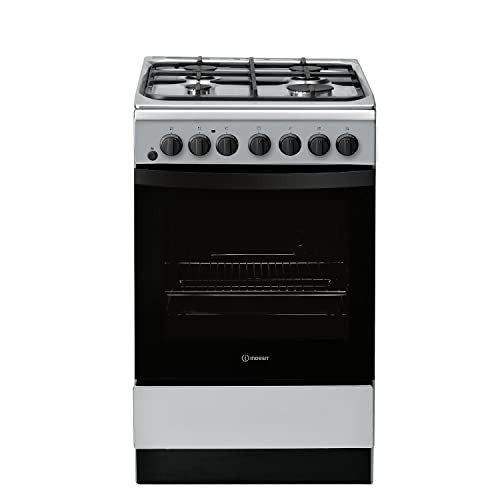Are You Responsible For The Electric Oven & Hob Budget? 12 Tips On How To Spend Your Money
Understanding Electric Ovens and Hobs: Your Guide to Cooking Efficiency
Electric ovens and hobs have transformed the cooking landscape, using home cooks and expert chefs a dependable, effective, and constant method to prepare meals. As technological improvements continue to affect appliance style, the performance and performance of electric cooking systems have actually substantially enhanced. This short article explores the features, advantages, and considerations surrounding electric ovens and hobs, offering an extensive summary for anyone aiming to update or buy kitchen devices.
What Are Electric Ovens and Hobs?
Electric ovens are kitchen home appliances created for baking, broiling, roasting, and other cooking techniques that require controlled heat. They use electric coils or convected heat aspects to create and keep the preferred temperature. Electric hobs, often referred to as electric cooktops, are flat surface areas with heating aspects that allow pots and pans to be placed straight on them for cooking.
Table 1: Key Differences Between Electric Ovens and Hobs
Feature
Electric Oven
Electric Hob
Primary Function
Baking, roasting, broiling
Heating pots and pans for cooking
Heating Method
Electric coils or glowing aspects
Induction, glowing, or ceramic components
Operation Temperature Range
As much as 500 ° F (260 ° C
) Varies by style; generally lower than ovens
Cooking Styles
Versatile; suitable for various dishes
Mainly stovetop cooking techniques
Space Requirement
Generally built into cabinetry
Frequently standalone or built-in alternatives
Energy Consumption
Typically greater, depending on use
More energy-efficient with induction hobs
Benefits of Electric Ovens and Hobs
When thinking about electric ovens and hobs, it's necessary to understand their many benefits, which can enhance the cooking experience.
1. Constant Heating
Electric ovens and hobs provide even and constant heating, which is important for lots of cooking strategies. This ensures that meals cook consistently, decreasing the possibilities of overcooking or undercooking specific areas of food.
2. Safety Features
Modern electric ovens and hobs come equipped with numerous security features to avoid mishaps in the kitchen. For instance, lots of models consist of automatic shut-off functions, hot surface area indicators, and kid security locks.
3. Easy to Use
Unlike gas designs, electric ovens and hobs are simple and user-friendly. The simpleness of turning on a dial or pushing a button makes them accessible for cooks of all ability levels.
4. Versatile Cooking Options
With various cooking methods possible, from baking to simmering, electric models are versatile adequate to accommodate a wide variety of cooking designs and preferences.
5. Cleaning and Maintenance
Electric ovens usually include smooth surfaces that are easy to tidy, particularly designs with self-cleaning capabilities. Hobs, specifically induction types, likewise supply a flat surface that is simple to clean down, making maintenance a breeze.
Popular Types of Electric Ovens:
- Conventional Ovens: Ideal for conventional baking and roasting.
- Convection Ovens: Circulate hot air for quicker, even cooking.
- Microwave Ovens: Use electro-magnetic radiation for fast heating and cooking.
- Toaster: Small counter top ovens for fast tasks.
Popular Types of Electric Hobs:
- Induction Hobs: Utilize magnetic fields for rapid heating and energy efficiency.
- Glowing Hobs: Feature electric coils that warm up to prepare food.
- Ceramic Hobs: Offer a smooth surface and are easy to tidy.
Factors To Consider When Choosing Electric Ovens and Hobs
While electric ovens and hobs provide many benefits, numerous factors need to be considered to guarantee the ideal suitable for your kitchen:
1. Space Availability
Evaluate the readily available kitchen area before purchasing. Identify whether you require an integrated model or a freestanding appliance, and measure the dimensions carefully to ensure a great fit.
2. Cooking Needs
Identify your cooking habits and preferences. If Electric Ovens Online bake big quantities or cook complex meals, think about an oven with sophisticated features like convection settings or several racks.
3. Energy Efficiency
Search for energy-efficient models that can assist save on energy costs gradually. Energy Star-rated devices can be especially cost-efficient.
4. Budget
Set a practical spending plan that represents both the preliminary purchase and ongoing operating costs. In addition to the home appliance cost, aspect in installation and potential repair work.
5. Extra Features
Think about whether functions like smart innovation, programmable settings, or steam cooking alternatives are important for your cooking style.
Frequently asked question Section
Q: How do I tidy my electric oven?
A: Most electric ovens included self-cleaning options. If your model does not have this function, enable the oven to cool, then wipe down surfaces with a mix of baking soda and water or a business oven cleaner.
Q: Is induction cooking safe?
A: Yes, induction cooking is considered safe as the heating element just triggers when suitable cookware touches with it, lowering the danger of burns.
Q: How long does it consider an electric oven to pre-heat?
A: Preheating times vary based upon the oven's design and temperature setting but generally vary from 10 to 15 minutes.
Q: Can I use any pots and pans on an induction hob?
A: No, only ferromagnetic pots and pans is compatible with induction hobs. Inspect for induction compatibility before usage to prevent damage.
Q: What is the difference between a stove and a traditional electric oven?
A: A convection oven consists of a fan that flows hot air, guaranteeing even cooking and reduced cooking times compared to a conventional electric oven, which does not have this feature.
Electric ovens and hobs supply a modern-day solution to numerous cooking requirements, using efficiency and dependability in the kitchen. As customers evaluate their choices, understanding the features, types, and considerations will allow them to make informed decisions. Whether one is an occasional cook or a cooking lover, electric home appliances can improve the overall cooking experience, bringing benefit and creativity to the table.
